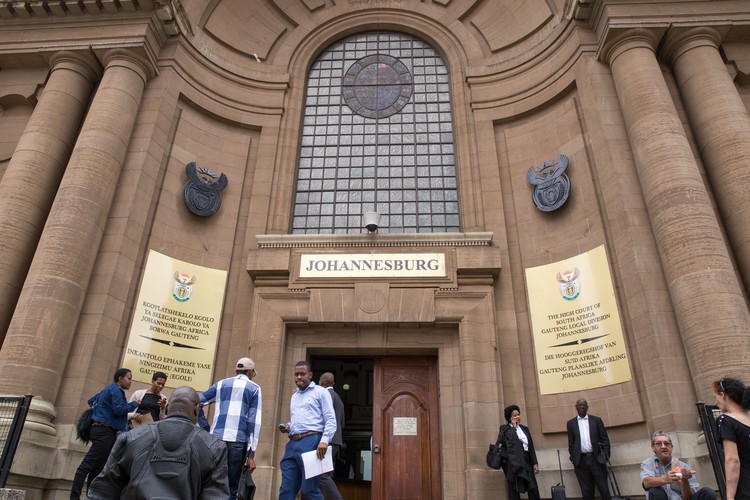

On Wednesday morning, Professor Sean Davison entered a plea deal with the state and will serve three years house arrest for whatever role he may have played in helping people to die to end their suffering. Photo: Ashraf Hendricks
19 June 2019
“I am ill with progressive cancer, which can only get worse. My quality of life can only deteriorate. I do not wish for a protracted, disagreeable death… I have decided to die by inaction. And would like to make the following requests. No resuscitation. No antibiotics. No attempts to make me eat.” These words are scrawled in a shaking hand as part of the living will of Dr Patricia Davison, dated September 2006.
Five weeks later, despite trying to starve herself and refusing medical treatment, the 85-year-old was still living in unbearable pain. Her son kept a diary recounting the many times she would beg him to help her end her life and take away her suffering. He later pled guilty to a charge of assisted suicide and was sentenced to five months house arrest by a court in New Zealand.
Professor Sean Davison faced similar charges in South Africa relating to the deaths of three other people including his friend Dr Anrich Burger. On Wednesday morning, Davison entered a plea deal with the state and will serve three years house arrest for whatever role he may have played in helping them end their suffering.
We still do not know the exact details of this role. What is clear, though, is that it should never have to come to this. No one should have to beg their loved ones to help them end their life; no one should feel compelled to assist their friends or family to do so. Instead, we need regulations in place to address this, to ensure that a person facing constant suffering can choose to approach a willing doctor to help them end their pain.
Thirteen countries and states around the world have legalised assisted dying in some form. Colombia, Canada, Belgium, Luxembourg, Switzerland, the Netherlands, and seven US states have all recognised the importance of the right to die in honouring a person’s sense of autonomy and human dignity. South Africa has yet to do so.
As it stands, our law does not prevent anyone from ending their own life, but it does prevent them from seeking help to ensure that this end is quick, painless and certain. It also makes it impossible for them to end their lives in the presence of their loved ones for fear that the loved ones may face prosecution – just like Sean Davison.
Without access to assisted dying, there are limited options left for those who wish to end their suffering. They are forced to continue living in agony against their wishes, to spend the rest of their lives in a medically-induced coma, to die painfully by refusing food or treatment, or to end their own lives alone using more violent means – which they may be unwilling or unable to do. Many doctors consider being unable to respect their patients’ wishes to be in conflict with their own medical ethics.
To address this, we would need a change in our law – one that not only makes assisted dying lawful, but also regulates the practice. There would have to be strict safeguards in place to ensure that there is no abuse of this system. In other words, only competent adults who ask for help of their own free will should be considered, and they should be assessed by a number of medical professionals to ensure they are not being coerced in any way. Doctors are already asked to make complex decisions about their patients’ end of life care – including discontinuing treatment and respecting their choice to refuse food, which ultimately result in their patients’ deaths.
Everyone should have access to the highest possible standard of end-of-life care, including palliative care to manage their pain and other symptoms. But even the best palliative care cannot relieve all suffering from all people. Many patients do not get proper relief from pain medications or do not wish to live with their side effects. Even for those who do, palliative care cannot prevent them from suffering when they lose all bodily autonomy and feel they have no quality of life. Assisted dying should in no way replace palliative care, but should instead complement and extend it, recognising the value a person places on an end to their life and their suffering that they themselves deem dignified.
The final lines in Dr Patricia Davison’s living will read, “I would prefer as few people to know about this as possible… I would like to thank everyone for their help up till now. Sean, what would I have done without you!” Faced with his mother’s suffering, Sean Davison did what he could to help her end the pain. No-one should have to be in this position, but only a change in our laws can address this.
The Centre for Applied Legal Studies will take every opportunity to argue for just such a change in our law. We have recently joined a case before the Johannesburg High Court, brought by two terminally ill people against the Minister of Health and Others.
Views expressed are not necessarily GroundUp’s.